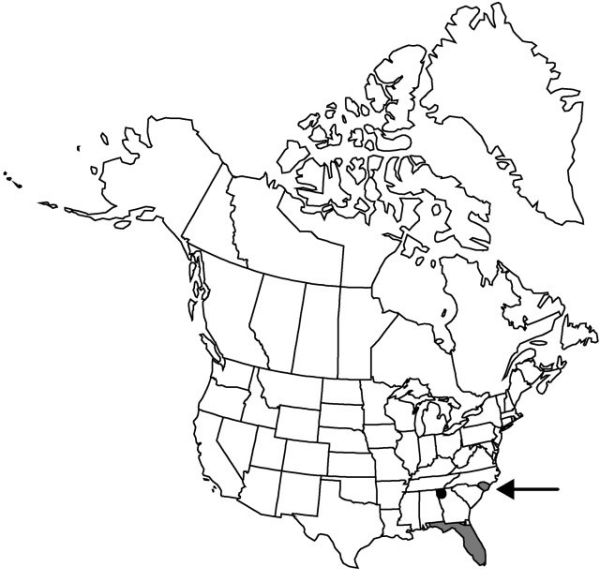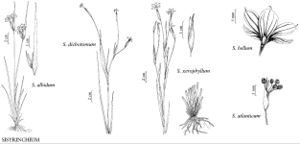Sisyrinchium xerophyllum
Pittonia 4: 32. 1899.
Herbs, perennial, dark to blackish olive when dry, to 5.7 dm, not glaucous; rhizomes slightly elongate. Stems branched, with 2–3 nodes, 2.4–5.7 mm wide, scabrous at least apically, margins denticulate to entire, similar in color and texture to stem body; first internode 15–39 cm, subequal to leaves; distalmost node with 2–3 branches. Leaf blades scabrous, bases becoming fibrous, persisting in tufts. Inflorescences borne singly; spathes green, obviously wider than supporting branch, slightly scabrous, keels entire; outer 14.8–24 mm, 0.5–1.8 mm longer than inner, tapering evenly towards apex, basally connate 3.8–5.6 mm; inner with keel evenly curved to straight, hyaline margins 0.1–0.3 mm wide, apex acute to acuminate, ending 0.3–7.5 mm proximal to green apex. Flowers: tepals pale blue to deep bluish violet, bases yellow; outer tepals 8.1–12.3 mm, apex rounded or emarginate, aristate; filaments connate ± entirely, stipitate-glandular basally; ovary similar in color to foliage. Capsules dark brown to black, ± globose, 3.8–8 mm; pedicel ascending to spreading. Seeds globose to obconic, lacking obvious depression, 1.3–3 mm, rugulose. 2n = 32.
Phenology: Flowering year round.
Habitat: Sandy soil in scrub oak barrens and pinelands
Elevation: 0–100 m
Distribution

Fla., Ga., N.C.
Discussion
Selected References
None.
